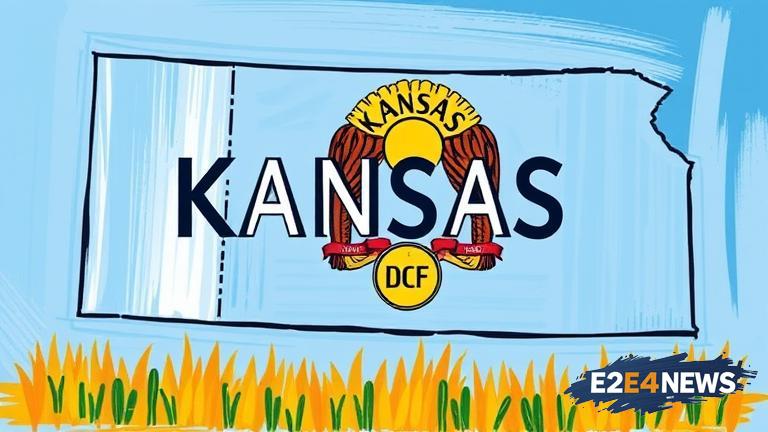The Kansas DCF has come under scrutiny for its refusal to comply with a request from the USDA to provide information on its food assistance program. The USDA had requested that the state provide data on its Supplemental Nutrition Assistance Program (SNAP), which provides food assistance to low-income individuals and families. However, the Kansas DCF has resisted the request, citing concerns about the confidentiality of the information. The USDA has warned that the state’s refusal to comply could result in the loss of federal funding for the program. The SNAP program is a critical component of the social safety net, providing assistance to over 300,000 individuals in Kansas. The program is funded by the federal government, but administered by the states. The Kansas DCF has been criticized in the past for its handling of the program, with some advocates arguing that the state has implemented overly restrictive eligibility requirements. The USDA’s request for information is part of a broader effort to ensure that states are complying with federal regulations and providing adequate assistance to those in need. The Kansas DCF’s refusal to comply has sparked concerns about the state’s commitment to providing food assistance to vulnerable populations. Some advocates have argued that the state’s actions are motivated by a desire to reduce the number of individuals receiving assistance, rather than a genuine concern about confidentiality. The USDA has emphasized that the information requested is necessary to ensure that the program is being administered effectively and efficiently. The agency has also noted that the information will be used to identify areas where the program can be improved, and to provide technical assistance to states that are struggling to administer the program. The Kansas DCF’s refusal to comply has also raised concerns about the state’s transparency and accountability. Some lawmakers have called on the state to provide more information about its handling of the program, and to explain why it is resisting the USDA’s request. The controversy has also sparked a broader debate about the role of government in providing social services, and the balance between state and federal authority. The SNAP program is just one example of a federal program that is administered by the states, and the controversy in Kansas has highlighted the challenges of ensuring that these programs are administered effectively and efficiently. The USDA has emphasized that it is committed to working with states to ensure that the program is a success, but has also noted that it will take enforcement action if necessary to ensure compliance with federal regulations. The Kansas DCF’s refusal to comply has also raised concerns about the potential impact on vulnerable populations, including low-income families and individuals with disabilities. Some advocates have argued that the state’s actions could exacerbate food insecurity and poverty, and have called on the state to reconsider its decision. The controversy has also sparked a reaction from lawmakers in Washington, with some calling on the USDA to take a tougher line with states that are resisting federal oversight. The USDA has emphasized that it is committed to working with states to ensure that the program is a success, but has also noted that it will take enforcement action if necessary to ensure compliance with federal regulations. The Kansas DCF’s refusal to comply has also raised concerns about the potential impact on the state’s economy, as the SNAP program provides a critical source of support for low-income individuals and families. Some advocates have argued that the state’s actions could have a negative impact on local businesses and communities, and have called on the state to reconsider its decision.
